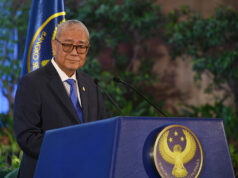PHL counted among economies that will benefit from tax reform
THE PHILIPPINES is one of few developing Asia-Pacific economies better-placed to benefit from tax reforms due to more effective debt management and state spending, according to a May 30 report of Moody’s Investors Service that was e-mailed to reporters on Thursday.
“Tax reforms are most likely to expand revenue bases in fast-growing economies with strengthening expenditure and debt management,” read the report, citing the Philippines, India, Indonesia, and Thailand in this regard.
“A sovereign’s growth and debt dynamics are important variables to assess implications for fiscal strength,” the report said further.
“The Philippines stands out as having both a comparably fast high real GDP (gross domestic product) growth rate and as being the only sovereign that has seen a material decline in its debt burden.”
Moody’s said broadening of the tax base will be “most effective” when tax reforms are “accompanied by fiscal deficit reduction, including measures that effectively manage expenditure growth.”
“Low or declining debt burdens and strong underlying GDP growth amplifies fiscal strengthening. As such, credit profiles of fast-growing economies that are undertaking fiscal consolidation and which have relatively strong or strengthening institutions — such as the Philippines, India and Indonesia — are likely to garner the most support from ongoing tax reforms in the medium term.”
The government has begun to overhaul the Philippines’ tax system in order to make it more equitable, while yielding more revenues. It started in January by reducing personal income tax rates while increasing or adding taxes on several items and removing many exemptions to the value added tax, among other steps. That first package, under Republic Act No. 10963, will be followed by lower corporate tax rates and removal of redundant fiscal incentives, as well as up to three more packages.
The four months to April have seen state revenues up a fifth annually to P927.4 billion, overall state spending grow 29% to P1.033 trillion and infrastructure and other capital outlays surge 47.5% to P222.7 billion. — Elijah Joseph C. Tubayan



